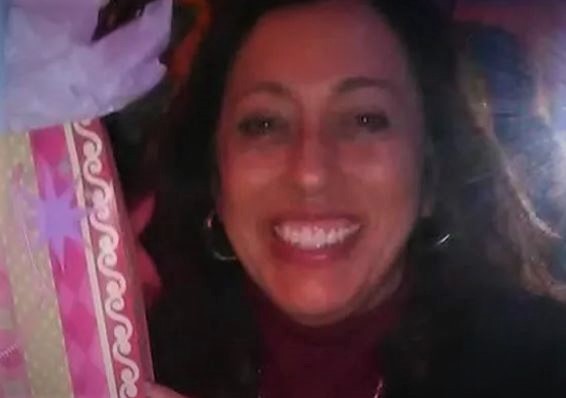Omar Velazquezhuar, a 48-year-old south Orange County man, was found guilty on Monday of killing his ex-girlfriend, Dora Maria Rosas Moreno, a 48-year-old resident of Santa Ana with a tire iron, in Irvine.
Moreno was attacked last February and was then taken by paramedics to a hospital in critical condition. She died from her injuries on March 17 of last year.
Velazquezhuar is facing 26 years to life in prison. He might have been sentenced to life in prison intead however the jury rejected a special circumstance allegation of murder by lying in wait.
Moreno broke up with Velazquezhuar seven months prior to her murder, according to Senior Deputy District Attorney Janine Madera’s closing argument.
Moreno worked as a nanny for an Irvine family and lived with them for several months during the pandemic. She had returned to the Santa Ana apartment where she had previously lived in with Velazquezhuar, when she was killed.
Madera told the jury that five days before Moreno was beaten to death, Velazquezhuar had dinner with his children at the apartment they all had lived in together. During their dinner, he noticed some home improvements and when he suspected his estranged partner’s new boyfriend was behind the changes, he destroyed the changes with a hammer then left.
Madera also noted that later that night after their son drove his mother’s car to work at a local Walmart, he came back to the car to find the windows had been smashed in.
Velazquezhuar testified he had been drinking and doing cocaine while taking his medication the night of the killing and he then found a tire iron in a bar parking lot, which he took with him to confront Moreno.
Madera wasn’t buying Velazquezhuar’s testimony. She told the jury that Velazquezhuar had four days to calm down, after he found out about Moreno’s new boyfriend, but instead he chose to confront Moreno and he ended up fracturing her skull with the tire iron.
Velazquezhuar knew where Moreno worked and he parked his car out of sight so she wouldn’t get a heads up he was there, according to Madera.
Madera also said that Velazquezhuar wanted the attack to happen quickly before she could respond. She added that he had to plan what he did – which was an argument for first-degree murder, a charge that requires showing the suspect engaged in premeditation and deliberation.
When Velazquezhuar attacked all of the fatal blows were to the back of Moreno’s head, according to Madera.
While Velazquezhuar claimed to be inebriated he had the presence of mind to call his clients and cancel appointments so he could carry out the attack that day, according to Madera.
Velazquezhuar claimed that Moreno saw him and told him `get out of here I don’t want to talk to you,’ but Madera said there was “absolutely no provocation at the scene of the murder.”
Moreno had made it clear to Velazquezhuar many times before she was not interested in hashing things out with him, according to Madera.
When the attack happened, Moreno tried to get out of her car, by crawling out through the passenger’s side, but Velazquezhuar pulled her back in and then beat her over the head with the tire iron, according to Madera.
Velazquezhuar’s lawyer, O.C. Public Defender defense attorney Paul Rogers told the jurors that it was unlikely any planning went into the killing because it was done about 7 a.m. in a heavily congested, quiet neighborhood. He also said it would have made more sense to confront the victim after she got out of the car instead of trying to chase her through the vehicle.
Rogers admitted that what his client did was not OK and was in fact inexcusable. But he reminded the jurors that their job was to assign the right crime to the conduct. He then argued for lesser charges of second-degree murder or manslaughter because he said the killing was done in the heat of the moment.
Rogers said that the tire iron was “the dumbest weapon in the world.” And he noted that if Velazquezhuar had intended to kill Moreno and he wanted to get away with it, he shouldn’t have brought his phone with him because investigators can use records to trace your steps with the devices. Rogers said it was dumb for his client to bring his phone to the murder.
Rogers also blamed the Irvine police for not following up multiple leads to back up or refute evidence of planning the attack.
Rogers also claimed the cell phone was not investigated and that the prosecutor failed to show that Moreno was afraid of Velazquezhuar. Apparently the son of the couple saved his dad’s text messages. Rogers claimed to have read them and he did not see any threats against Moreno.
The police officers also did not do a blood draw on Velazquezhuar to test his claim that he was intoxicated, according to Rogers.
Rogers also said that the police officers did not attempt to get surveillance video from the bar the defendant was at that night or interview anyone who was there.
In the end Rogers’ arguments didn’t matter. Velazquezhuar was convicted. At best Rogers saved Velazquezhuar from a lifelong prison sentence.

